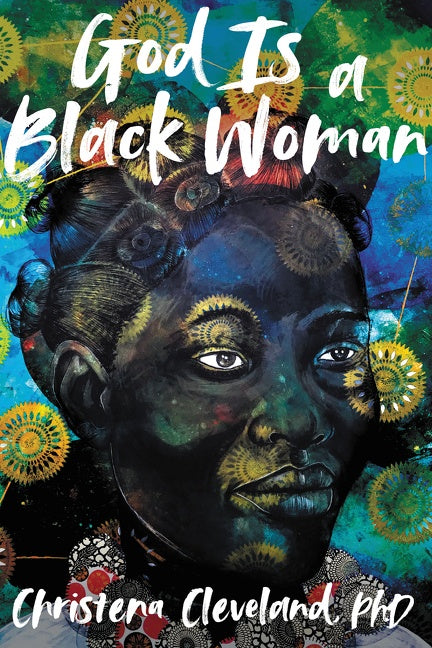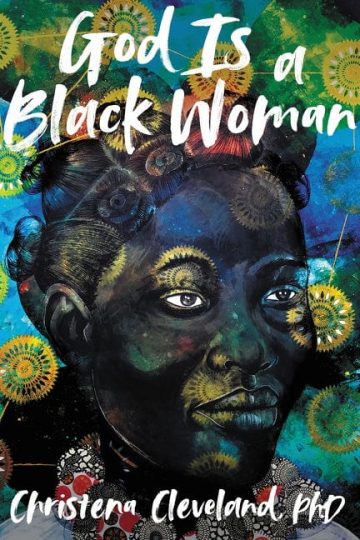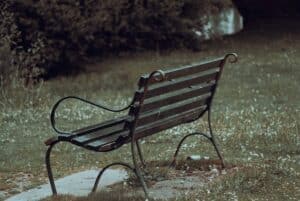
I have experienced and witnessed many Mormon women in stages of questioning their faith begin to search for Heavenly Mother, Mormonism’s feminine divine. We read Sue Monk Kidd’s Dance of the Dissident Daughter, inhale Heavenly Mother poetry in Rachel Hunt Steenblik’s I Gave Her a Name and Mother’s Milk, and search for a used copy of Carol Lynn Pearson’s Mother Wove the Morning. We experiment with addressing out prayers to Heavenly Mother or Heavenly Parents to see if that feels better than addressing Heavenly Father alone, desperate for answers to questions that we are beginning to form. And as we get into Heavenly Mother readings, we may also begin to worry about eternal polygamy. The cisgender, white, male, Heavenly Father that orders the Mormon universe infects our understanding of Heavenly Mother. For some of us, we do not find the liberation we are seeking in Her, just more hierarchical oppression.
Christena Cleveland’s book is both memoir and Womanist liberation theology. It tells stories from her pilgrimage to France to see Black Madonnas, images of the divine feminine that share her blackness. As she journeys and encounters these early medieval statues, she tells her readers what they mean to her and how they upend white male God’s distance (chapter 2), demands for perfection (chapter 3), and use of fear as a spiritual motivator (chapter 8). Instead, Cleveland describes the divine Black Mother as “She Cherishes Our Hot Mess” (chapter 5) and “She Whose Thick Thighs Save Lives” (chapter 7). For Cleveland, the divine Black Mother is with us in all of the challenges of life, meeting us precisely where we are, affirming LGBTQ+ identities, and never demanding more as a condition of love and grace.
While telling this story of pilgrimage and theology, Cleveland also talks about the ways in which imagining God as a white man hurt her family and their relationships to each other. One of the great strengths of this book is the author’s ability to name so many of the ways in which Christians have invested God with oppressive identities and behaviors that mirror our own social problems. Believing in this image of God reproduces the very harms we want our faith to overcome. By investing an image of God with multiple marginalized identities, Cleveland describes a God who can resist that earlier flawed image.
The one issue I had with the book was its use of the phrase “Judeo-Christian.” This language, created and used by Christians, imagines a cultural tradition in the United States that overstates the shared values of Christians and Jews while erasing Muslims and people from other religious traditions. Still, this book has much to offer readers, and particularly the Mormon feminist readers of this blog.
At an earlier stage of my faith transition, when I was starting to unpick the white supremacy in myself, I wondered what it would mean to me to imagine God as a Black woman. The specific face that came to my mind was that of actress Nichelle Nichols, who played Uhura in Star Trek: The Original Series. In my mind, Nichelle Nichols was not the young actress but the older woman who appeared in some of the Star Trek movies. I took comfort in the wisdom and courage that she represented as a Black woman in the public eye in the wake of the Civil Rights movement. I realized in this exercise that many of my faith challenges stemmed from an understanding of God that was hurting me and destroying my faith. I desired a more flexible space for thinking of God in different ways. Cleveland’s book was the one I needed seven years ago to help me in this work of re-imagining a more loving God.






7 Responses
Adding this book to my list! And a little upset at how called out I feel by that first paragraph 😉
We’ve all been there! Nor do I want to denigrate the excellent work of Sue Monk Kidd, Rachel Hunt Steenblik, or Carol Lynn Pearson. It is also OK if we need more than what Heavenly Mother has to offer.
Isn’t it ridiculous that we have to unpack the images of God that we’ve been taught in order to find genuine connection to Creator Spirit?
I think it is why so many former Mormons turn away from faith and God entirely. Doing the work of reimagining God is really hard and there aren’t enough resources out there that both name the problems and possible solutions, as Christena Cleveland’s book does.
This is gorgeous. Thank you!
Thank you for the recommendation.
Sounds like a much needed book and perspective. Thank you.
Carol Lynn Pearson published a collection of poems, about a year ago, “Finding Mother God: Poems to Heal the World” that was very moving and important for me.